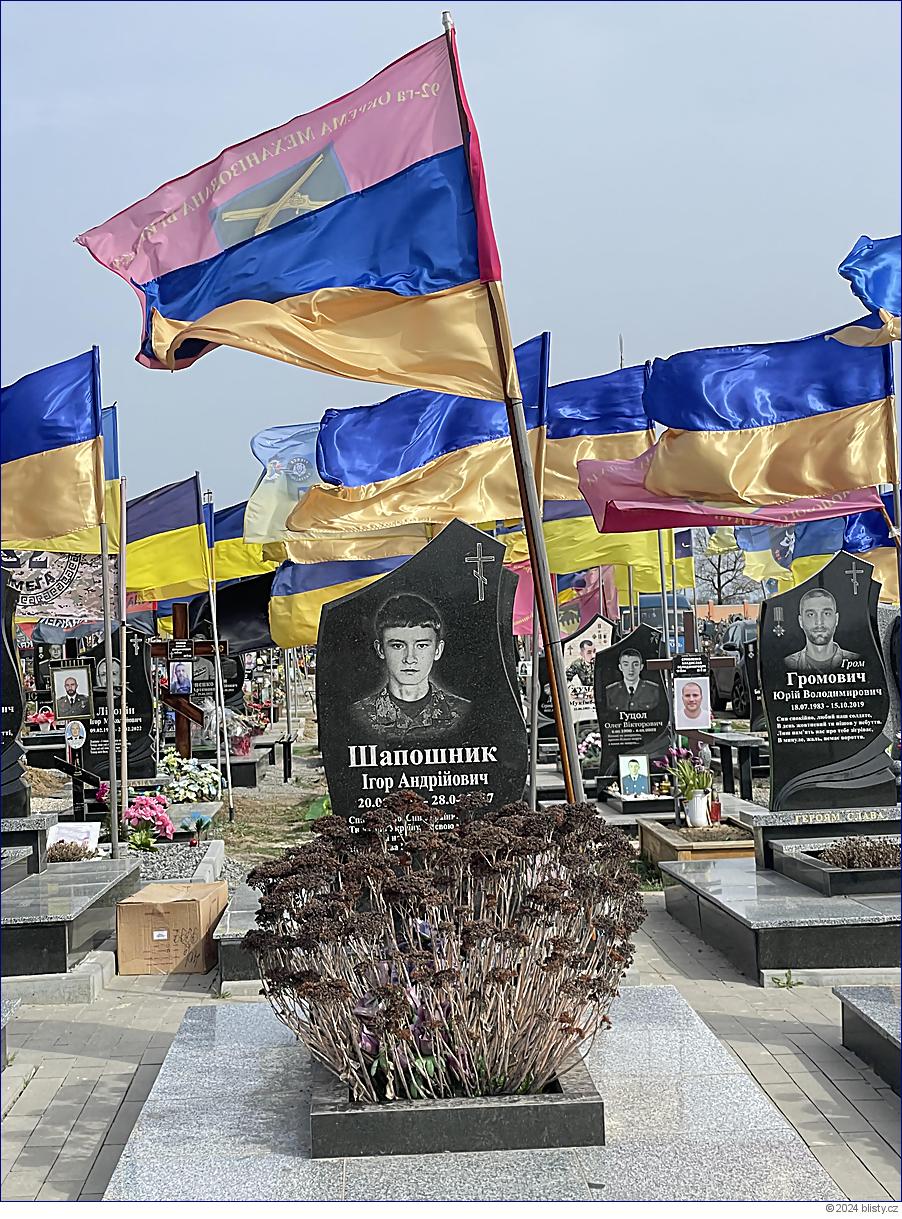
Hard to understand cowardice of the West in Ukraine
4. 4. 2024 / Bohumil Kartous
We have just returned from Kharkiv, one of Ukraine's largest cities, which lies within "comfortable" distance of the Russian border. Russia has been murdering civilians there unhindered, while Ukraine is being chastised for attacking Russian war resources. And the West, permanently in a pre-election mood, hesitates...
Kharkiv doesn't get many visitors anymore, especially Western politicians are afraid to come here. Because the war there is indeed ever-present and palpable at every turn. From the "blooms" left by mortar shells, to the broken windows after rocket and aerial bomb explosions, to the destroyed houses in the city centre or the ghostly Saltivka housing estate.
The war for this city began in 2014 and it has never left it. During the day, sometimes ten, sometimes fifteen times, your phone will vibrate, alerting you to seek shelter. Since the Russian border is less than 40 kilometres away, you have about 30 seconds to do so.
But you can't do that even if you could make it in that impossible time. You can't run for cover ten or fifteen times a day in a panic, because you would lose the rest of your sense of livability. So when the alert goes off, you continue on your way, resigned to the fact that the missile might land right where you are.
A tip forn the readers: Install the Air Alert app on your mobile phone, add the Kharkiv region, and experience, at least remotely, the treats which people in Kharkiv experience daily.
At the same time, you know very well what this causes. Kharkiv is full of destroyed houses where people used to live. Thousands of them are no longer alive, hundreds of thousands have left for understandable reasons to find a safer place to live. But many people have returned despite the daily threat of war. Even to Saltivka, the unintended shield of the city that intercepts most of the Russian "defensive attacks".
And the cemetery is growing at a very fast pace. A section dotted with flags shows the direct victims of the war. Every day you find more families who have come to bury their loved ones there, and there are many such cemeteries in Ukraine, especially in the east. Empty graves will definitely not wait long, somewhere on the front, but also maybe right in the city there is a person who will be buried in a few hours.
Maybe it will be those firefighters who were killed by a repeated rocket attack on the same spot last night. It is the Russian tactic of killing rescue workers who arrive on the scene of a previous attack.
Everyone in Kharkiv has a similar view. If there is another ground invasion, this city is one of the most directly threatened. Even so, it remains full of people who do not want to be "denazified" by the criminal Putin. The locals do not accept that the Russian army could take Kharkiv. Yet everyone knows that the death toll would be huge.
And they are not really counting on the West to save them. They have already discovered the difference between what is being publicly stated in the West and what is actually happening. While Russia is quite deliberately and insidiously murdering civilians, Ukraine is being reprimanded by the West for attacking Russian refineries, and the UN is outraged at the attack on the factory where Russia makes killer drones.
They just politely ask for support in the fight against the criminal kleptocratic syndicate of the Russian Federation, and point out that this criminal regime will not be embarrassed to attack elsewhere if it senses weakness, and there is indeed weakness on the part of the West.
At the same time, they are grateful, for example to the Czech Republic, for its efforts and willingness to contribute to the defence against an absolute, unjustifiable evil. The mathematics behind this is primitively simple: the multiple weapons, ammunition and people that the Kremlin regime is willing to expend and sacrifice cannot be resisted without immediate help. These are mainly artillery munitions, missile systems, air defence systems and drones.
Ukraine cannot do without them and needs to acquire them as soon as possible.
Otherwise, many more will end up in the Kharkiv cemetery completely unnecessarily, probably including those witnesses and involuntary participants in the war that we have been able to talk to.
I thank Adam K. Syber and Peter Pojman for their preparation, organization, sharing of their impressive knowledge, translation and accompaniment. Thank you to Robin Kvapil, Marketa Gregor and Sofia Danyliak for their courage and company. I will write another and longer report about it.


Diskuse